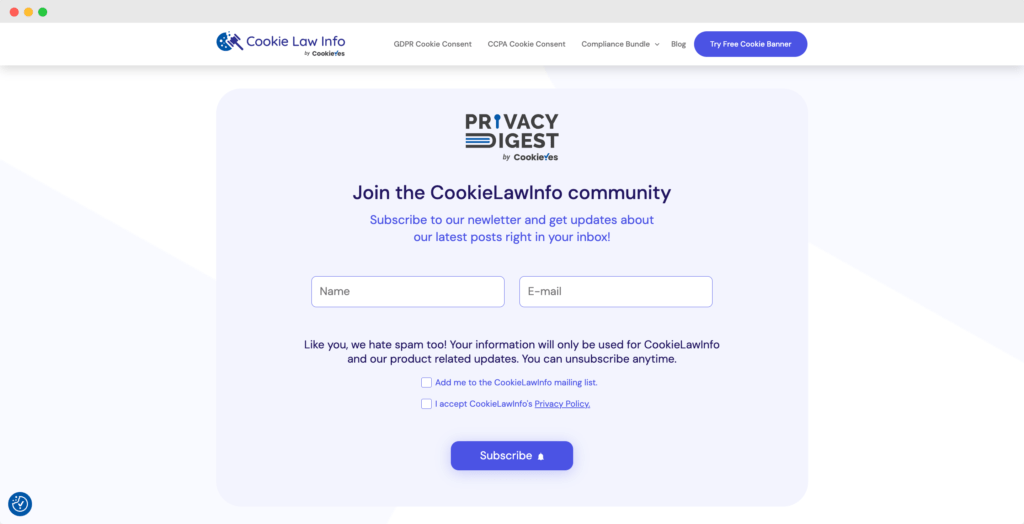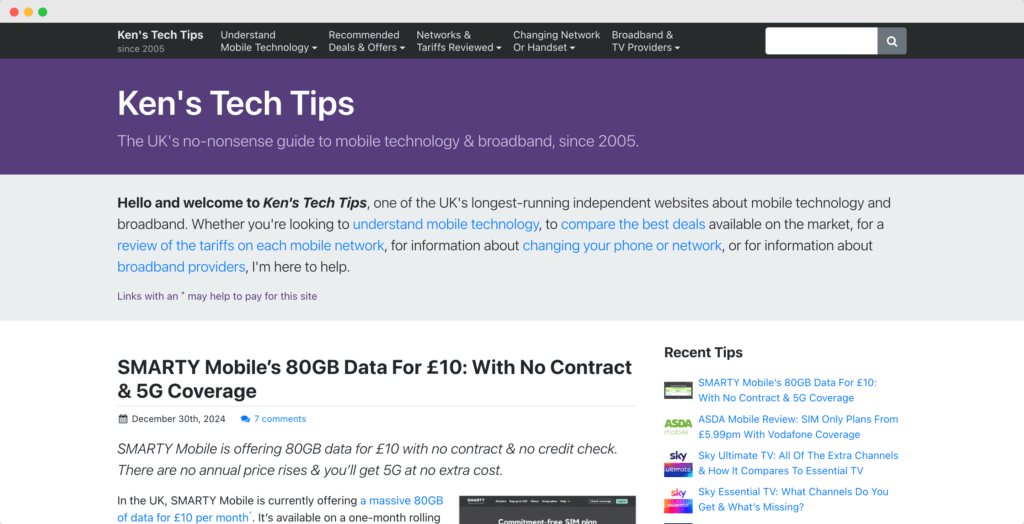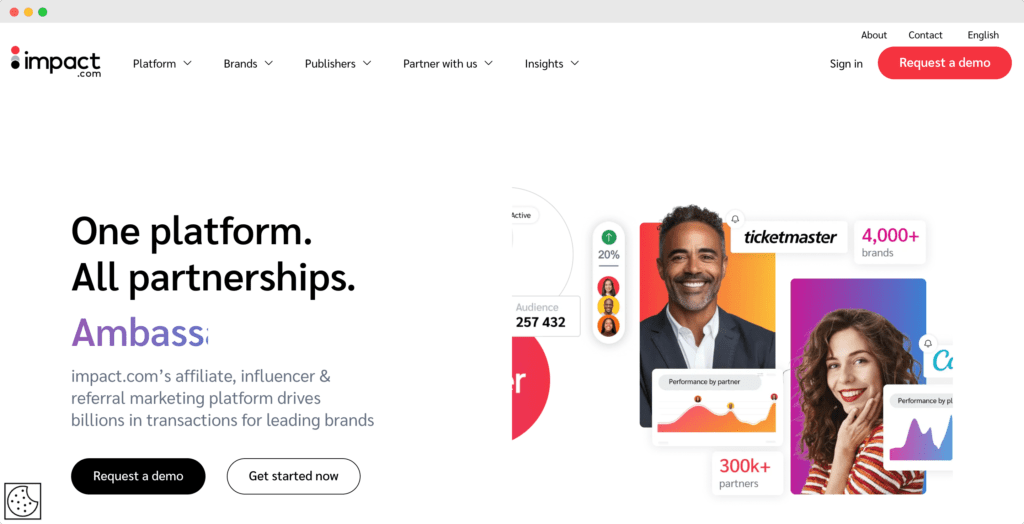
Affiliate marketing brings unmatched opportunities to grow your brand, but one aspect that can’t be ignored in 2025: compliance.
Neglecting affiliate marketing compliance isn’t just risky; it could lead to severe financial penalties, damage to your brand’s reputation, and even legal battles.
But with the right steps, you can protect your business and consumers while maintaining a successful affiliate program.
This affiliate marketing guide is your roadmap to understanding its compliance, especially for small business owners like you. Let’s get started.
What Is Affiliate Marketing Compliance?
Affiliate marketing is when businesses partner with people (known as affiliates) who promote their products and services in exchange for a commission for every sale or lead they generate. It helps businesses reach new customers and increase sales.
However, it comes with certain rules that businesses and affiliates must follow.
Affiliate marketing compliance ensures your affiliate program adheres to all relevant legal, ethical, and regulatory standards. But what does this mean for you as a brand owner?
3 Key Elements of Affiliate Marketing Compliance
- Disclosures and transparency
Affiliates must disclose their relationship with your brand. Whether through phrases like “This post contains affiliate links” or more detailed explanations, transparency builds trust with your audience. - Adhering to local and international laws
Compliance isn’t one-size-fits-all. From the U.S. Federal Trade Commission (FTC) guidelines to the European Union’s GDPR, each region has unique rules to follow. - Affiliate partner monitoring
Your responsibility doesn’t end when you onboard an affiliate. Monitoring their content ensures they represent your brand ethically and within the law.
Compliance is about more than avoiding fines. It protects your brand from public backlash, builds trust with your audience, and ensures a fair playing field for everyone involved.
Legal and Regulatory Frameworks to Know in 2025
“In affiliate marketing, compliance helps to build audience trust and protect brand reputation. Brands can adhere to compliance by providing clear guidelines to affiliate partners with the help of a contract agreement that specifies commission structure, data privacy laws, disclosure requirements, prohibited practices, and termination clauses.” — Harpreet Singh from Tanot Solution
Affiliate marketing regulations are shifting fast. Here’s what small businesses need to know:
1. Updated FTC Guidelines
The FTC has expanded its guidelines to address the growing influence of affiliate and influencer marketing. In 2025, the focus is on making disclosures clear, conspicuous, and unavoidable.
What does this mean for brands?
Affiliates must disclose their relationship with your brand in every promotional content—whether it’s a blog post, YouTube video, Instagram reel, or TikTok ad. For brands heavily reliant on video campaigns, collaborating with experienced video production firms ensures that disclosures are seamlessly integrated into high-quality content while maintaining compliance. The disclosure should be:
- Clear: Avoid vague terms like “Thanks to [Brand]” or burying disclosures in hashtags. Instead, use statements like “I earn commissions from purchases made through these links.”
- Conspicuous: Disclosures must appear where audiences are most likely to see or hear them, such as at the start of a blog post or video description.
The disclosures should look something like this:

2. Global Compliance Considerations
Borders don’t limit affiliate marketing, but the legal requirements change drastically based on location. Here’s a closer look at major regulations that might affect your program:
- GDPR (General Data Protection Regulation) – EU
If your affiliates target EU citizens, GDPR compliance is a must. This means affiliates need to:
- Obtain consent before collecting any personal data (e.g., email addresses).
- Explain how the data will be used (e.g., in email marketing).
- Ensure the consumer can opt out of data collection at any time.
- CCPA and CPRA – California, USA
The California Consumer Privacy Act (CCPA) and the California Privacy Rights Act (CPRA) are very important for data privacy in the U.S. These laws give consumers the right to:
- Know what data is being collected about them.
- Opt out of the sale of their data.
- Request deletion of their personal information.
For brands, this means ensuring your affiliates’ websites provide opt-out mechanisms and privacy policies in line with California law.
- Other Regional Laws – UK and Australia
- In the UK, affiliate content must comply with the ASA’s CAP Code, which mandates transparency in all advertising. Affiliates should label posts clearly as advertisements or sponsorships.
- Australia’s Consumer Law requires that claims made by affiliates be truthful and not misleading.
Provide region-specific compliance guides to affiliates to ensure they follow local regulations. For instance, include example disclosures specific to EU (GDPR) and California (CCPA) audiences.
Here’s an example of a general GDPR consent form.

3. Emerging Trends Impacting Compliance
The rise of AI-generated content and advanced analytics tools adds another layer of complexity to affiliate marketing compliance in 2025.
- AI-generated content: If affiliates use AI to create visual content, blogs, captions, or product reviews, they must ensure the content doesn’t mislead consumers or violate copyright laws.
- Data privacy challenges: AI-driven ad targeting often involves tracking user data. This practice must comply with privacy laws like GDPR or face hefty penalties.
How to Ensure Affiliate Marketing Compliance (With Examples and Clear Steps)
Understanding affiliate marketing compliance can seem daunting, but here’s how to protect your brand while empowering affiliates to do the right thing.
1. Create a Strong Compliance Policy
Start by clearly defining your expectations. For example, affiliates must include disclosures such as: “As an affiliate, I earn from qualifying purchases.” This statement should appear prominently on blogs, in social media captions, or within video descriptions.
Next, outline prohibited practices, such as using false claims or promoting your product on inappropriate platforms.
Let’s say your brand sells organic skincare. If an affiliate advertises your product with unapproved phrases like “guaranteed to eliminate acne in 24 hours,” this could lead to both legal trouble and customer distrust. Leveraging customer feedback tools can help identify misleading claims by tracking customer sentiment and complaints effectively.
Also, the consequences of violations should be made clear. A first-time offence might warrant a warning, while repeated violations could result in removing the affiliate from the program.
2. Train Your Affiliates
Non-compliance often stems from ignorance rather than intent. Providing affiliates with the right resources makes them understand their responsibilities and represent your brand appropriately.
Start by creating a comprehensive compliance guide covering everything from FTC disclosure rules to consistently using your brand’s voice and tone.
To make it even more effective, host regular training sessions or webinars. These sessions should cover new regulations, such as updated FTC guidelines for short-form video disclosures, and offer practical examples.
Keep communication lines open. A dedicated Slack channel or email thread can serve as a space for affiliates to ask questions and share updates.
3. Monitor Affiliate Activities
Use affiliate management platforms like Refersion or Impact.com to track affiliate content and disclosures, ensuring practices align with your compliance policy.
In addition to automated tools, schedule manual audits. For instance, review a random sample of affiliate blogs, social media posts, or videos each quarter.
Look for missing disclosures or content that violates local laws, such as GDPR for EU audiences or FTC guidelines for U.S.-based content.
If you discover outdated disclosures in your affiliate program, address them immediately by notifying affiliates and offering detailed guidance to fix the problem. This ensures compliance and safeguards your brand’s reputation.
4. Ensure Accurate Disclosures
Disclosures are the backbone of affiliate compliance. Affiliates must inform audiences about their financial relationship with your brand.
To make this foolproof, provide pre-approved templates like:
- Blog post disclosure: “This post contains affiliate links. I may earn a small commission at no extra cost to you.”
- Social media: “#Ad #Affiliate”
- Video content: A verbal disclosure at the start and a written one in the description.
Placement is just as important as the wording.
For blogs, disclosures should appear at the top of the post.
Ken’s Tech Tips provides a great example of an effective disclosure.

Phrasing it as “reader-supported” creates a sense of community, highlighting how visitors contribute using affiliate links.
On Instagram or TikTok, they need to be visible in captions rather than buried in hashtags.
What Non-Compliance Looks Like:
An Instagram post says: “Get 20% off this amazing product!” without indicating that it’s an affiliate link.
What Compliance Looks Like:
“Use my affiliate link to get 20% off. #Ad #Affiliate”
Tools and Technology for Compliance Management
Managing compliance doesn’t have to be overwhelming when you have the right tools. Here’s how these technologies help smoothen processes and ensure your affiliate program remains both effective and compliant:
Affiliate Management Platforms
Platforms like Impact.com help track affiliate disclosures, monitor performance, and flag non-compliant activities in real-time. These tools centralise affiliate management, making enforcing rules and staying compliant easier.
Here are some leading tools for managing affiliate marketing programs:
Impact.com: Offers advanced tracking for affiliate activities, including disclosure monitoring and performance analytics, ensuring compliance in real-time. It also provides tools for recruitment, payments, and partnership optimisation.

PartnerStack: Focuses on growing partner networks by automating onboarding, tracking sales and referrals, and managing payouts, all while ensuring compliance for affiliate managers.
CJ Affiliate: Specialises in connecting brands with affiliates, offering tracking, fraud detection, and tools to maintain compliance while scaling networks for affiliate marketers.
AI and Automation
AI tools like Shield scan affiliate content for missing disclaimers or misleading claims, flag issues, and suggest fixes instantly. This 24/7 monitoring reduces manual effort and minimises compliance risks.
Analytics Tools
Tools like Google Analytics and Affise combine performance tracking with compliance monitoring, ensuring affiliates drive results ethically.
Affise, for example, offers a secure, centralised platform to manage affiliates. It offers advanced tracking, fraud prevention, and performance insights. It also helps brands monitor affiliate activities, manage payouts, and ensure compliance with privacy laws like GDPR.

Case Studies: Brands That Got It Right (and Wrong)
Success Story
Castlery is a digital-first furniture brand. It faced challenges in identifying effective affiliate partners and monitoring their performance.
They partnered with an affiliate management platform and established clear goals for their affiliate program, including increasing average order value (AOV) and streamlining management processes.

The brand achieved a 12% increase in AOV within a year, showcasing the effectiveness of its compliance-focused approach to affiliate marketing.
When Non-Compliance Backfires
BGO Entertainment Ltd, a UK gambling company, was fined £300,000 for running misleading ads. Their affiliates failed to clearly explain the promotions’ terms, leading to customers’ confusion. Even after being warned, BGO didn’t fix the issues quickly.
This case shows why keeping a close watch on affiliates and following advertising rules is crucial. Ignoring compliance can cost your brand both money and trust.
The Future of Affiliate Marketing Compliance
Compliance isn’t just about following the rules today. It’s about preparing for tomorrow. Here’s what you need to keep in mind:
Predicted Changes in Regulations
Future regulations will likely address emerging trends like AI-generated content and influencer accountability more directly. Governments may implement stricter rules to ensure transparency and protect consumers from misleading promotions.
This means staying informed about potential changes and adapting quickly to avoid penalties or legal trouble for small businesses.
Evolving Affiliate Strategies
The approach to affiliate partnerships is shifting. Instead of working with large networks, businesses focus on fewer high-quality affiliates aligning with their brand values.
This strategy simplifies compliance by reducing the risk of inconsistent messaging or non-compliant promotions.
It’s no longer just about quantity but about building trust and ethical practices with affiliates representing your brand well.
Staying Ahead
Proactively preparing for the future ensures long-term success in affiliate marketing.
- Regular policy updates: Review your compliance policies frequently to keep them aligned with new laws and industry standards.
- Affiliate education: Provide ongoing training for your affiliates to help them understand their responsibilities and stay compliant.
- Invest in monitoring tools: Use advanced tools to track affiliate activities and identify potential issues before they become problems.
- Stay informed: Keep up with regulation changes by following industry updates and seeking legal advice when needed.
Focus on these steps, and your brand will be ready to handle whatever changes come next while building stronger, more trustworthy affiliate relationships.
Conclusion
This affiliate marketing guide helps small businesses navigate compliance complexities and build trustworthy partnerships. By understanding the regulations, providing affiliates with the right resources, and using technology, you can run a compliant and effective program.
Here’s a quick checklist for ensuring compliance:
- Have a clear and enforceable compliance policy.
- Train affiliates regularly with updates on legal requirements.
- Monitor affiliate activities using tracking platforms and audits.
- Provide examples and templates for accurate disclosures.
Start implementing your compliance strategy today to protect your brand’s reputation and drive growth.



